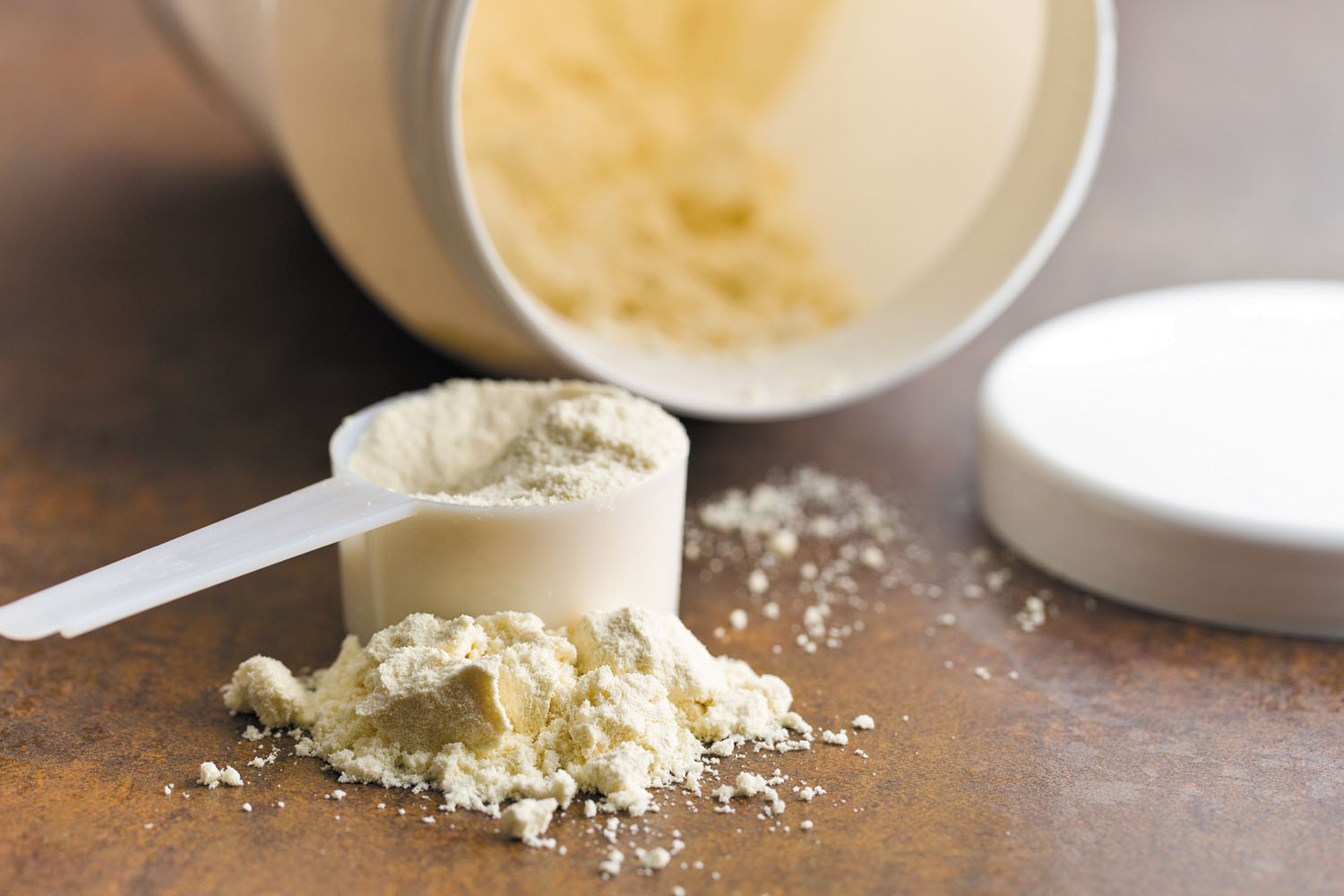The Pros and Cons of Using Protein Powder When Exercising
Protein powders are a very lucrative business, and the products are popular for a wide variety of reasons: Vegetarians might feel that their diets are somewhat lacking, athletes may want to add muscle faster or aim for a competitive edge, and still others might be looking for a quick meal that isn’t dripping with grease. And there’s an equally wide variety of products on the market. Here’s what you should know about protein powders.
The Pros
1. Can Help Athletes Meet Their Increased Protein Requirements
The International Society of Sports Nutrition recommends that those who exercise should try to reach their protein requirements via whole foods, but protein supplements can be a practical way for high-intensity athletes to meet their increased protein requirements quickly after a workout. If opting to use protein supplements, they should contain both whey and casein protein because of the high protein digestibility, corrected amino acid score and ability to increase muscle mass.
2. Creatine Can Aid Physical Performance
Some protein shakes contain creatine which is a nitrogenous organic acid produced from amino acids. The European food safety authority report that there is sufficient evidence which shows that for high-intensity athletes consuming 3g of creatine per day may help to achieve an increase in physical performance during short-term, high-intensity, repeated exercise bouts.
3. May Be Useful With Exercise-Induced Poor Appetite
It has been found that some people experience exercise-induced poor appetite after high-intensity exercise, in these cases protein shakes may be better tolerated than whole food.
4. Convenience
Protein supplements are quick and easy to use and may be useful if time, cooking facilities or cooking skills are limited. They can also be useful if you are specifically trying to increase the protein content of meals without raising the fat or calorie content too much.

The Cons
1. Usually Not Necessary
The Department of Health recommends that adults should not consume more than twice the recommended daily intake of protein which is 55.5g for men and 45g for women. The average daily protein intake in the UK is 88g for men and 64kg for women, and as protein shakes often include roughly 20 – 40g of protein per serving, the consumption of protein shakes could easily lead to an excessive protein intake. The British Dietetic Association reports that when energy requirements are met, a balanced diet will usually provide enough protein to meet the increase in requirements associated with exercise.
2. Poor Supporting Evidence
The overall evidence base for the use of protein supplements isn’t very strong; the European Food Safety Authority reports that there is insufficient evidence to support a cause and effect relationship between whey protein supplements, branched-chain amino acids or L-Glutamine and the growth or maintenance of muscle mass, an increase in endurance capacity, skeletal muscle tissue repair, and faster recovery from muscle fatigue after exercise.
3. Health Risks
It has been shown that consuming too much protein over a long time can worsen existing kidney problems and can increase the risk of developing osteoporosis. Side effects of over-the-counter protein supplements include dehydration, constipation, increased bowel movements, nausea, cramps, bloating, reduced appetite, fatigue and interaction with medication.
4. May Contain Illegal and Harmful Substances
An investigation by the UK Medicines and Healthcare Regulatory Agency found that 84 sports nutrition products which were being sold contained dangerous ingredients including steroids, stimulants and hormones which can result in kidney failure, seizures or heart problems. One specific product “Celtic Dragon” was taken off the market after causing two men to be hospitalized with severe jaundice and liver damage. The biggest risk is usually with supplements bought online, but even legal sports supplements can be contaminated by illegal substances. There have been examples of this resulting in doping scandals for professional athletes; the professional boxer Enzo Maccarinelli was suspended from boxing for 6 months after testing positive for a banned substance which was reportedly found in a fat-burning supplement described as an approved supplement for fighters.
How to Get the Most Out of Protein Powder
A dietitian can help you decide whether protein powder is the best bet for your diet or whether you’re getting enough nutrients from food alone. A doctor can keep an eye on potential protein-related health concerns with your kidneys or your calcium intake. If you add protein to your diet, be sure to add plenty of fluids to head off dehydration. Read product labels and be sure you understand what you’re consuming. Look for good-quality products or well-established companies in the nutrition field, and use these in moderation.



